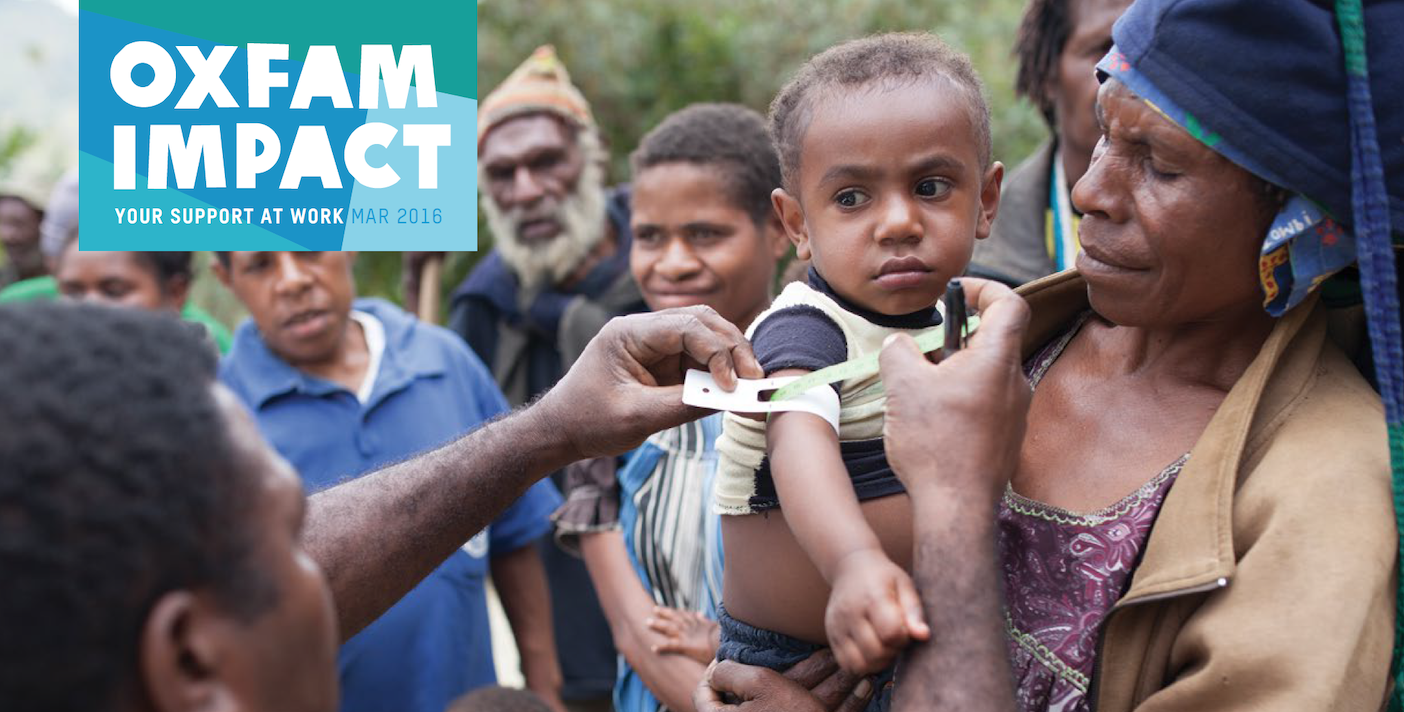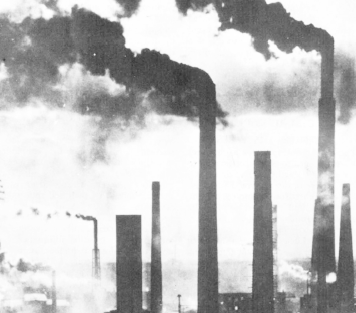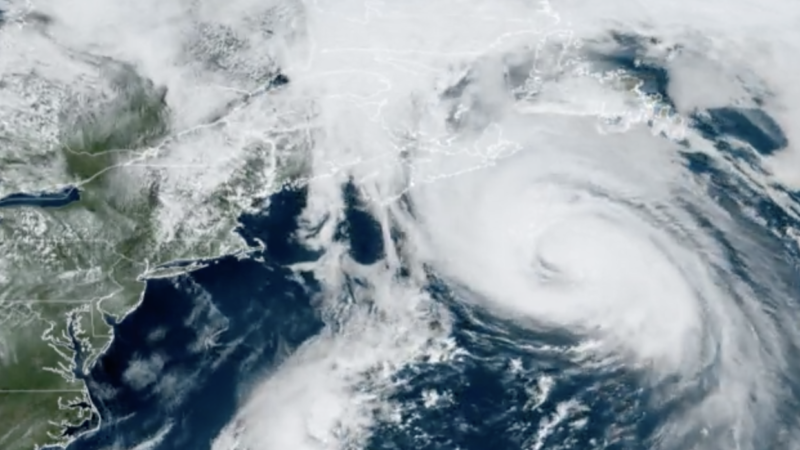With a population of 7.4 million people, Papua New Guinea is enduring the consequences of one of the strongest climate phenomenon’s on record: water and food shortages for many.
ABOVE: Lodwina Martin holds her two-year-old son, Minge Martin, during an evaluation of his nutritional status in Danbagl
By Jacob Smith
When Smiley Jacob realized that her daughter Grace, who was just five months old, was losing weight, there was nothing that she as a mother living in Tugumpaso village in Eastern Highlands Province of Papua New Guinea could do about it. “I went to the local pastor to pray for her,” said Jacob. “It was all I could do. We have very little food.”
Triggered by a global weather system known as El Niño, the worst drought in nearly 20 years has left Jacob, and countless others across the Pacific’s largest nation, scrambling to feed their families. Rainfall has been below average for almost a year. Combined with frost in the highlands, the conditions have destroyed crops and livestock, leaving farming communities in the grip of severe food shortages. Making matters worse, as rivers and creeks dry up, villagers are turning to alternative water sources, which can compromise good hygiene practices and cause sicknesses like diarrhea, dysentery, and typhoid. And many women now must walk even farther to get the water their families need.
As many as 2.4 million people in Papua New Guinea alone could be enduring the severe challenges of an El Niño supercharged by climate change. The 2015–2016 phenomenon is one of the strongest El Niños ever recorded, and the UN has predicted that its consequences could affect more than 60 million people across the Pacific, East and Southern Africa, Latin America, and the Caribbean.
Weevils eat, families don’t
In Papua New Guinea’s rugged highlands, the staple crop is sweet potato, known in the local language as kaukau. But lack of rain has decimated harvests: the roots have withered and the plants have dried out. On the few occasions that it does rain, the water gets trapped in the holes burrowed by weevils, causing the sweet potato tubers to rot. “The dry season has destroyed all the sweet potatoes in my garden,”
That was Abraham Komitkambe, who lives in Danbagl, a village nestled in a valley beneath Papua New Guinea’s highest peak, Mount Wilhelm. A widower, he has a bad knee that prevents him from doing much physical work and earning an income.
“Now I have nothing. … Most of the time I’m very hungry.” His meals consist of a piece of sweet potato in the morning and two pieces at dinnertime. “This is the longest dry season we have ever experienced. This is why we are going through a very rough time,” added Lodwina Martin, who also lives in Danbagl and worries about her four children, three of whom are usually in school—unless hunger keeps them away. Because of the drought, her family is only eating once a day.
Learning to adapt
Together with local partners, Oxfam is working with communities like Tugumpaso and Danbagl to help families adapt to the changing climate. Projects have included the improvement of existing water supply and storage systems, the distribution of jerrycans and soap along with sanitation and hygiene training, and training to farmers on how to maintain their gardens under drought conditions. Mulching, to help the soil hold moisture, and composting are two key strategies Oxfam is promoting.
“Mulching works best with taro, banana, and sugarcane,” said Oxfam’s Sonny Hiztille, a senior livelihoods officer. “We focus on protecting high-energy crops as these will help people through the drought.”
In Danbagl, Oxfam helped install a network of pipes that now delivers water close to where people live—a huge time-saver for women who used to walk half an hour to a stream and lug a supply home.
“The tap makes life easier. It has a big effect on the community,” said Joanne Kambe, adding that Oxfam’s hygiene promotion has also helped the community improve its overall health. “Children becoming sick is a big problem around surrounding communities. Not here,” she said. “We have seen a big, big change.” Danbagl resident Margaret Kondango, who is glad for better access to water and toilets and has taken to heart all she has learned about improved public health, put it this way: “In our traditional custom when we’re happy we scream. I want to scream, but we’re in a closed room. So, I just want to say that I’m very thankful they’ve sent us this training.”




